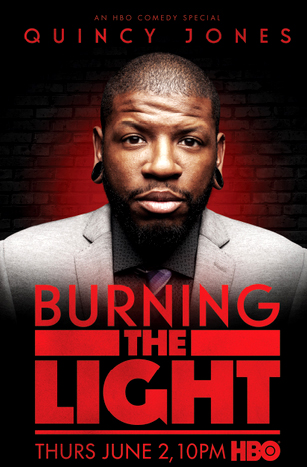“What do you do as a dying man when you’re already following your dreams?” That’s the question we hear Quincy Jones ask at the opening of his first stand-up special, Burning the Light, which premieres tonight on HBO at 10 PM. It was a little less than a year ago, in July of 2015, that Jones was diagnosed with stage four mesothelioma. And if his prognosis at that time had been correct, he’d only have weeks left to live. Instead, he’s still out there doing stand-up, celebrating a career milestone.
The sentimentality doesn’t last long once Jones hits the stage. He raised a lot of money on Kickstarter to produce this special, based on the fact that he was dying. It’s a lot of pressure, he says. “I can’t live longer than three years with this shit,” he says. “You blow that far past your goal, they expect a great special and a casket.” He riffs on being the “Magic Johnson of cancer,” living another five years and making everyone wonder if he’s really sick and makes light of his food choices as a chemotherapy patient, comparing himself to a pregnant woman when he’s craving flaming Cheet-ohs and egg nog.
Jones doesn’t dwell on cancer-related material, but it’s sprinkled through the act. Most of the time, he is addressing more mundane, every day topics like dating, aging, and social media. Even when he sets up a bit with an outrageous statement, usually he backs out of it into much more pedestrian peccadillos. “I figured out how to make genocide work,” he says. The problem is we’ve been doing it by race and religion, and not obnoxiousness. On his list? Pumpkin spice enthusiasts and people who say things like “I prefer their earlier work.”
He bemoans the search for true love. “Love is so hard that Nicholas Sparks is getting a divorce,” he says. “He wrote the fucking Notebook, he can’t hack it?” Then he breaks down his chances by the numbers. Seven billion people in the world. Half are religious, and he isn’t. Not all of them are straight, not all of them speak English, not all of them are in LA, which he figures brings him down to about one million. “Here’s the catch, I don’t have a car,” he says. “So one million’s down to 12. But some of those women are on the bus.”
Even if he did find true love, there is another catch. “I have to ask the girl, define ‘long term’ relationship,” he says.
There are a couple of jabs at racial issues later in the special. He proposes that cops would be less willing to shoot black people if they all carried small dogs. “Then PETA would step and be like, ‘We have got to stop letting these cops kill these anim- these peop-“ He lets the punchline hang there a bit for the audience to digest. Jones details how black people have broken down barriers in sports, music, and even politics. The final frontier? They need a fair shot at being slave masters.
He closes with a good bit, returning to the cancer theme. The material dealing with his illness is less than a quarter of the special, but I was still surprised it was even that prevalent. When I spoke with Jones for the Boston Globe in February, I asked how often he joked about his cancer in his act. He said it depended on the room. A lot of good things had happened to him, a lot of media attention that helped him far outstrip his original Kickstater goal. But he was aware of the subtext of it.
“For me, this is a constant reminder that I’m sick,” he said. “Of all the good things that are happening and how great I feel when I’m on that stage, it’s still a constant reminder of my mortality. So it’s always important for me to just keep things calm and in check.”
Jones had raised enough money to shoot his special when we originally spoke, but shortly after that he visited The Ellen DeGeneres Show and got the news HBO had picked up his special. I wouldn’t be surprised to see a second special from him. It was already on his mind before he’d even had firm plans for the first. I asked him then what he’d do once he finished the first special. “You start working on a second hour,” he said. “You start rebuilding, revising. I feel like you’re never really truly satisfied. There’s always room for improvement and growth.”
